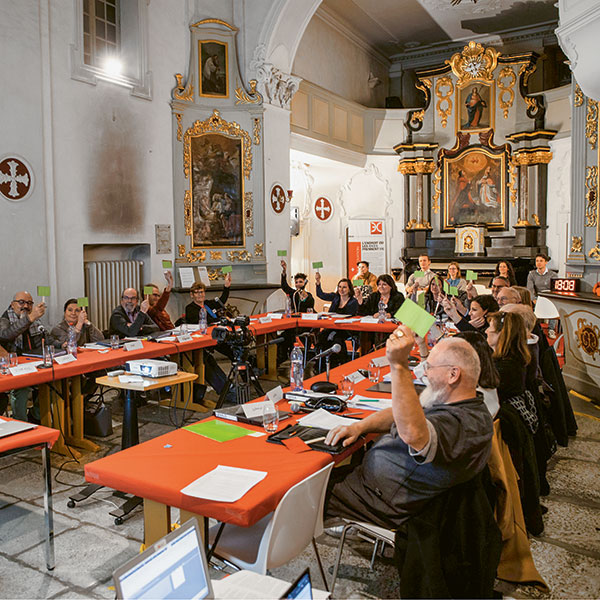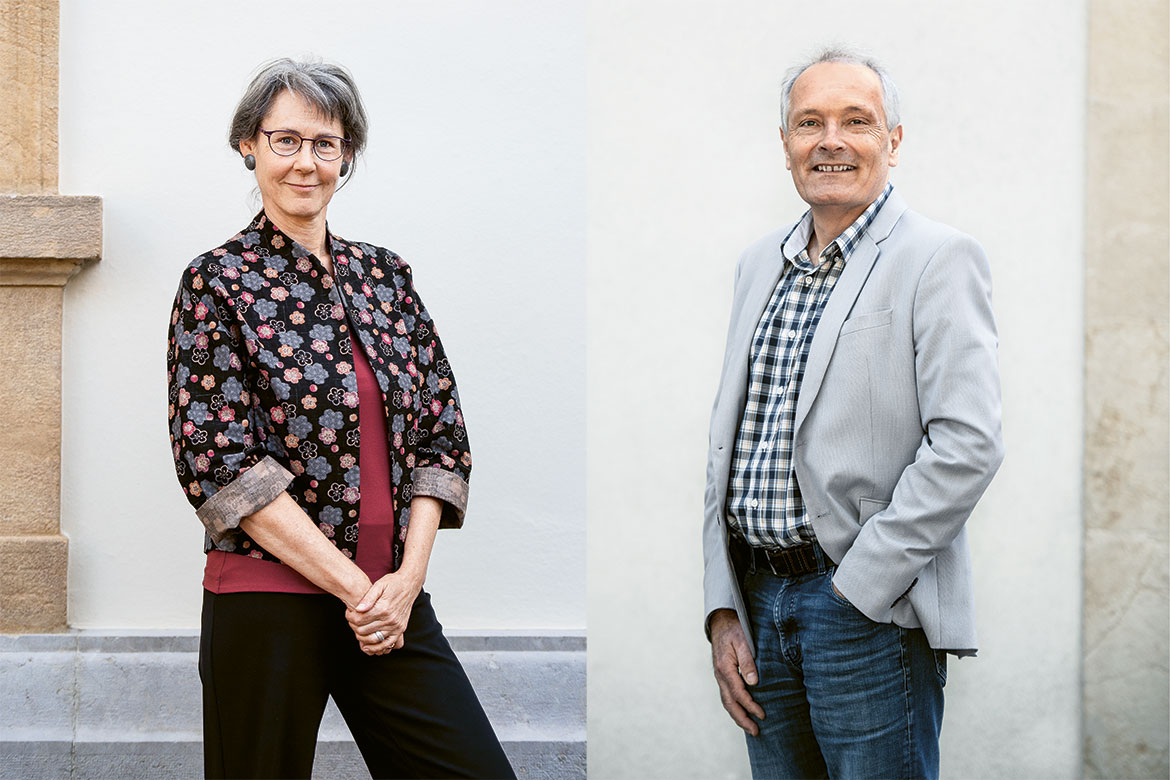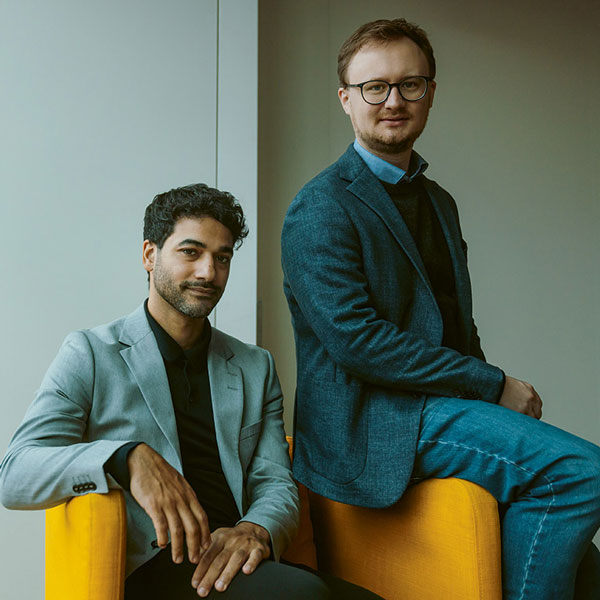Debate
Debate: Should sex be forbidden between teaching staff and students?
In order to combat sexual harassment at universities, tertiary institutions in Australia have also forbidden romantic relationships between academic personnel when there is a power imbalance between them. Such instances can also lead to abuse. But does such a ban make sense?

Natasha Abrahams | Image: zVg

Anika Thym | Image: zVg
In August 2017, the Australian Human Rights Commission released results of their national survey into university students’ experiences of sexual assault and harassment. Among other shocking results they found that for one in ten postgraduate students who were sexually harassed at university, the perpetrator was a tutor or lecturer.
Subsequently, the higher education sector has attempted cultural change. It has been necessary to examine inappropriate relationships between supervisor and student. While some believe that crossing boundaries is fine if it is between two consenting adults, this viewpoint ignores the influence a supervisor wields over their student’s completion of their degree and their research career.
Many who withdraw from their studies cite the behaviour of their supervisor as a key reason for leaving. Adding the potential for romantic entanglements adds unnecessary complexity. In some unfortunate cases, students may become victims of inappropriate behaviour from their supervisor, feeling that they must endure this if they wish to complete their research. In other circumstances, a student may initially consent but feel unable to end the arrangement due to the consequences for their studies.
Several higher education peak bodies jointly developed the Principles for Respectful Supervisory Relationships in 2018. The principles recognise that a sexual or romantic relationship between a supervisor and their student is never appropriate due to the inherent power imbalance. The principles are not binding, but universities have used them to develop policies to give them response mechanisms in cases of supervisors engaging in relationships with their students.
For students who are victims of inappropriate supervision behaviour, the experience has isolating and distressing effects. When it all goes wrong, even if it began as a consenting relationship, the consequences fall squarely on the student – unless their university has a commitment to support the student and intervene with respect to the supervisor’s behaviour.
Natasha Abrahams is a former president of the Council of Australian Postgraduate Associations (CAPA). CAPA is the peak representative body for Australia’s postgraduate students.
The Principles for Respectful Supervisory Relationships at Australian universities rightly emphasise that there is a power imbalance between doctoral students and their supervisors that can encourage sexual abuse. But I am against any fundamental ban on sex between academic personnel when they are on different levels of the university hierarchy – though this is precisely what the Australian principles also require. This is because people will always develop romantic feelings for others, and the challenge should rather be how to deal with this appropriately, and to maintain one’s professionalism. Banning sex and romantic relationships will instead just mean that more abuse goes unreported. What’s more: why should one forbid consensual, loving relationships (even if the context makes them complicated), if the problem in fact lies in their abuse?
We have to take a look at other fields of action. How can we prevent abusive behaviour from happening? Possible solutions include codes of behaviour and mandatory anti-discrimination training for people in management functions. And how can we support those whose situation in the balance of power is precarious, without their suffering from negative consequences? One solution would be to expand the number of possible supervisors for doctoral theses, perhaps to include lecturers. But independent coaches have also proven their worth. What’s more, there are conspicuous contact people available for all those affected by abuse. They can help to protect the victims, and they have the authority to intervene appropriately if necessary.
Finally, it seems problematic to me to erect a ban on informal contexts – such as when a professor and a doctoral student go for a meal in a restaurant after a lecture. Such contact can be highly valuable and inspiring for our scientific work. To limit this seems to me to be the wrong way to go about things. Instead, we should be promoting a respectful, professional approach in a scholarly context.
Anika Thym is a doctoral student undertaking gender research at the University of Basel and is a representative on the committee for equality of opportunity at the Faculty of Philosophy and History.

Natasha Abrahams | Image: zVg
In August 2017, the Australian Human Rights Commission released results of their national survey into university students’ experiences of sexual assault and harassment. Among other shocking results they found that for one in ten postgraduate students who were sexually harassed at university, the perpetrator was a tutor or lecturer.
Subsequently, the higher education sector has attempted cultural change. It has been necessary to examine inappropriate relationships between supervisor and student. While some believe that crossing boundaries is fine if it is between two consenting adults, this viewpoint ignores the influence a supervisor wields over their student’s completion of their degree and their research career.
Many who withdraw from their studies cite the behaviour of their supervisor as a key reason for leaving. Adding the potential for romantic entanglements adds unnecessary complexity. In some unfortunate cases, students may become victims of inappropriate behaviour from their supervisor, feeling that they must endure this if they wish to complete their research. In other circumstances, a student may initially consent but feel unable to end the arrangement due to the consequences for their studies.
Several higher education peak bodies jointly developed the Principles for Respectful Supervisory Relationships in 2018. The principles recognise that a sexual or romantic relationship between a supervisor and their student is never appropriate due to the inherent power imbalance. The principles are not binding, but universities have used them to develop policies to give them response mechanisms in cases of supervisors engaging in relationships with their students.
For students who are victims of inappropriate supervision behaviour, the experience has isolating and distressing effects. When it all goes wrong, even if it began as a consenting relationship, the consequences fall squarely on the student – unless their university has a commitment to support the student and intervene with respect to the supervisor’s behaviour.
Natasha Abrahams is a former president of the Council of Australian Postgraduate Associations (CAPA). CAPA is the peak representative body for Australia’s postgraduate students.

Anika Thym | Image: zVg
The Principles for Respectful Supervisory Relationships at Australian universities rightly emphasise that there is a power imbalance between doctoral students and their supervisors that can encourage sexual abuse. But I am against any fundamental ban on sex between academic personnel when they are on different levels of the university hierarchy – though this is precisely what the Australian principles also require. This is because people will always develop romantic feelings for others, and the challenge should rather be how to deal with this appropriately, and to maintain one’s professionalism. Banning sex and romantic relationships will instead just mean that more abuse goes unreported. What’s more: why should one forbid consensual, loving relationships (even if the context makes them complicated), if the problem in fact lies in their abuse?
We have to take a look at other fields of action. How can we prevent abusive behaviour from happening? Possible solutions include codes of behaviour and mandatory anti-discrimination training for people in management functions. And how can we support those whose situation in the balance of power is precarious, without their suffering from negative consequences? One solution would be to expand the number of possible supervisors for doctoral theses, perhaps to include lecturers. But independent coaches have also proven their worth. What’s more, there are conspicuous contact people available for all those affected by abuse. They can help to protect the victims, and they have the authority to intervene appropriately if necessary.
Finally, it seems problematic to me to erect a ban on informal contexts – such as when a professor and a doctoral student go for a meal in a restaurant after a lecture. Such contact can be highly valuable and inspiring for our scientific work. To limit this seems to me to be the wrong way to go about things. Instead, we should be promoting a respectful, professional approach in a scholarly context.
Anika Thym is a doctoral student undertaking gender research at the University of Basel and is a representative on the committee for equality of opportunity at the Faculty of Philosophy and History.




